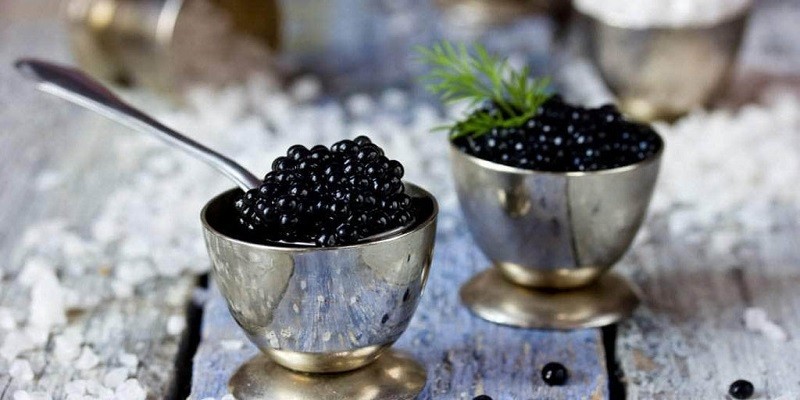Yes, pregnant women can eat caviar, but it should be consumed in moderation and preferably pasteurized to minimize the risk of foodborne illnesses and mercury exposure.
Caviar, a luxurious delicacy made from fish roe, is enjoyed worldwide for its unique taste and texture. However, pregnant women often face dietary restrictions to ensure the safety of their developing fetus. This article explores whether caviar is safe for pregnant women, its nutritional benefits, potential risks, and safe consumption practices.
What is Caviar?
Caviar is the roe (eggs) of sturgeon fish, known for its rich, buttery texture and salty flavor. It is often served as a garnish or appetizer and is considered a high-end delicacy. Caviar comes in various types, including beluga, osetra, and sevruga, each with distinct flavors and textures.
Nutritional Value of Caviar
| Nutritional Value | Details |
|---|---|
| Calories | 42.2 per tablespoon |
| Protein | 7 grams per ounce |
| Fat | 5 grams per ounce |
| Omega-3 Fatty Acids | 800 mg of EPA and 1,080 mg of DHA per ounce |
| Vitamin B12 | 236% of the Daily Value per ounce |
| Iron | 1.9 mg per tablespoon |
| Calcium | 44 mg per tablespoon |
Risks of Eating Caviar During Pregnancy
| Risks | Details |
|---|---|
| Mercury Exposure | Low in caviar, but still a concern if consumed in large quantities |
| Listeria Infection | Risk from raw or unpasteurized caviar, which can cause serious complications |
| High Sodium | Can lead to increased blood pressure and fluid retention, especially in those with preeclampsia |
Safe Ways to Eat Caviar During Pregnancy
To safely enjoy caviar during pregnancy, opt for pasteurized varieties, which have been heat-treated to kill harmful bacteria. Always purchase caviar from reputable sources to ensure it is fresh and properly handled. Limit consumption to small quantities to avoid excessive sodium intake and potential mercury exposure.
Alternatives to Caviar During Pregnancy
| Alternatives | Precautions |
|---|---|
| Pasteurized Caviar | Ensure it is from a reputable source |
| Smoked Salmon | Choose hot-smoked varieties to ensure it is fully cooked |
| Seaweed Caviar | A plant-based alternative that mimics the texture and flavor of real caviar |
Experts Tips
- Consult Your Doctor: Always discuss with your healthcare provider before adding caviar to your diet during pregnancy.
- Check Labels: Ensure the caviar is pasteurized and from a trusted source to minimize risks.
- Moderation is Key: Limit intake to small servings to avoid high sodium and potential mercury exposure.
FAQs
Is pasteurized caviar safe during pregnancy?
Yes, pasteurized caviar is considered safe as the heat treatment kills harmful bacteria.
How much caviar can I eat while pregnant?
It is recommended to limit caviar consumption to small quantities, such as 1-2 tablespoons per week.
What are the benefits of eating caviar during pregnancy?
Caviar is rich in omega-3 fatty acids, protein, and essential vitamins like B12, which support fetal development.
Can I eat raw caviar during pregnancy?
It is best to avoid raw caviar due to the risk of listeria and other foodborne illnesses.
Are there any alternatives to caviar that are safe during pregnancy?
Yes, alternatives like pasteurized caviar, hot-smoked salmon, and seaweed caviar are safe options.
Conclusion
Caviar can be a nutritious addition to a pregnant woman’s diet when consumed in moderation and in pasteurized form. It offers essential nutrients like omega-3 fatty acids and vitamin B12, which are beneficial for fetal development. However, it is crucial to be aware of the potential risks and consult with a healthcare provider to ensure safe consumption.

